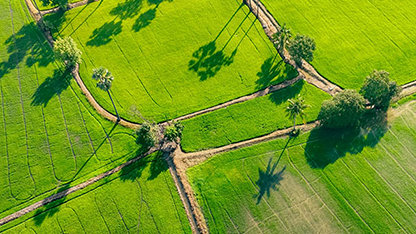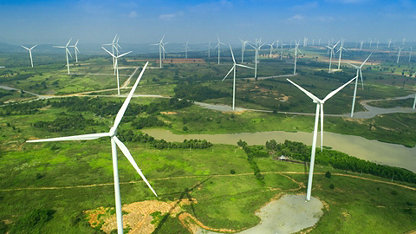Ecosystem damage over the last 50 years of the twentieth century was greater than in any comparable period of human history, with estimates that the demands of contemporary global society effectively consume 1.5 ‘Planet Earths’. There is a pressing need to use landscapes and other ecosystems in more sustainable and integrated ways. This regenerative landscapes report highlights the need and the means for rebuilding carrying capacity across rural, urban and other cultural landscapes, with a significant emphasis on water.
Purpose of the research
There is no simple objective criterion defining indisputable public good or equity. Today’s challenges are not unidimensional but are ‘wicked problems’, difficult or impossible to solve because of incomplete, contradictory and changing requirements, and complex interdependencies.
This regenerative landscapes report intends to stimulate a review of policy and decision-making processes concerning agricultural and other land uses the influence of business on natural resource use and policy areas from transport to defence.
Principles of success
The research draws upon the STEEP (social, technological, environmental, economic and political) framework to characterise key features behind the success of regenerative approaches. The report highlights that, as with any system, all aspects of the STEEP framework have to be addressed in an integrated way.
Drawing on a range of case studies from across the globe, this regenerative landscapes report identifies transferrable success factors to accelerate progress towards regenerative ecosystem uses both in study regions and for more generic application. Examples of some of the key principles of sucess include:
- Social considerations: out-scale successes using proven and important social networks.
- Technological considerations: adapt technical solutions to localised geographical and cultural contexts, also taking account of their long-term consequences.
- Environmental considerations: recognise that the services of natural ecosystems are a core resource generating multiple benefits.
- Economic considerations: progressively integrate an expanding range of services into markets and challenge assumptions that multi-service outcomes are not profitable.
- Political considerations: address driving policy or other development priorities as ‘anchor services’, around which outcomes for all ecosystem services and hence net societal value are optimised.
Conclusions
The report's key conclusion is that regenerative outcomes are possible only when all facets of the system inform decision-making and resource use. When choices, for example about technology selection and operation, are made accounting for protection of natural processes and human needs, these tend to promote long-term sustainability, equity and economic viability.
Published date: 08 March 2018
Our latest research
Providing information to stimulate debate and promote leading-edge thinking.
We rely on input from our professionals. Take part in our leading market indicators












